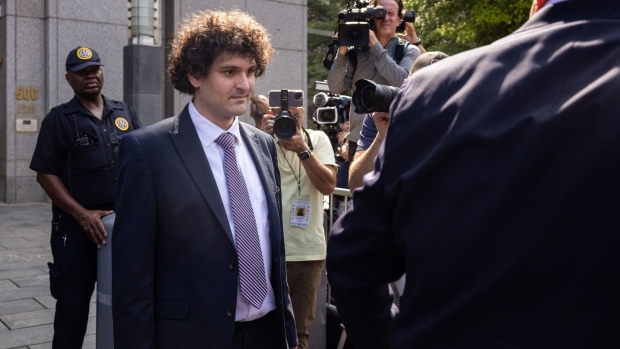Aug 24, 2023
Why Jailed FTX Co-Founder Sam Bankman-Fried is Unlikely to Have Access to Adderall
, Bloomberg News

(Bloomberg) -- Life at Brooklyn’s notorious Metropolitan Detention Center has proved challenging for disgraced former crypto CEO Sam Bankman-Fried.
The federal detention center is the largest in the US, housing some 1,600 people who are awaiting trial for their alleged crimes. Politicians in New York have decried the “utterly inhumane conditions” at MDC and have asked the federal government for reforms.
Bankman-Fried’s attorneys say he’s been subsisting on “bread and water” as well as a little peanut butter, and that requests to fill Adderall prescriptions to treat his ADHD and depression have been ignored. They have also asked that the 31-year-old FTX co-founder be allowed to leave MDC five days a week to work on his defense.
Federal prison and jail policies suggest that Bankman-Fried is entitled to ADHD medication, but not Adderall. The Federal Bureau of Prisons, which has jurisdiction over MDC, rarely allows medications considered to be stimulants.
Adderall and similar medications “should not commonly be prescribed first-line for treating patients within the correctional setting due to the risk of misuse and diversion,” prison officials wrote in a 2021 document laying out clinical guidance for ADHD treatment.
Bankman-Fried’s antidepressant medication of choice, a patch called Emsam, may not be immediately available either.
These circumstances are all too common for the nearly half a million people in the US who sit behind bars pretrial, awaiting their day in court. Last year, the American Civil Liberties Union asked a judge to intervene in the Los Angeles County jails after they found people with serious mental illness chained to chairs for days at a time and that the jail failed to provide medication to people with chronic conditions.
A person died at the Rikers Island jail complex earlier this week, marking the eighth person this year. The island jail, which serves as New York City’s local lockup, is about 15 miles north from where Bankman-Fried is being held.
Read More: Judge to Consider Takeover of Rikers After Unreported Deaths (2)
When US District Judge Lewis A. Kaplan revoked Bankman-Fried’s bail at a plea hearing in Manhattan earlier this month, it marked the second time in less than a year that he found himself behind bars.
The first time, following his December arrest in the Bahamas on charges of fraud, Bankman-Fried was allowed relatively luxurious conditions during his eight nights at the island nation’s Fox Hill Prison. He had access to cable television, air-conditioning, a shower and a working toilet — amenities denied to a majority of the people in custody there at the time.
Conditions at the Brooklyn jail, located in the Sunset Park neighborhood, have come under federal scrutiny before. A 2019 report by the Office of the Inspector General for the US Department of Justice found typical conditions at the jail ranged from inadequate heating and cooling systems to sexual assaults by employees against incarcerated women. That report was commissioned in the aftermath of a weeklong blackout that left detainees freezing in the dark.
MDC is a far cry from the luxurious Bahamian penthouse where Bankman-Fried lived until last December, and from the 3,000-square-foot home in Palo Alto, California, where he was under house arrest supervised by his parents.
And while detainees can request special meals on religious grounds, a waiver on the basis of veganism would require a different petition which might still be denied in the end.
Ghislaine Maxwell, who spent time at MDC prior to her conviction on charges related to sex trafficking, similarly complained about the lack of vegetarian options at the center. At the time, animal-rights group PETA responded by writing a letter to the leadership of the center “offering its help and experience in working with other prisons to serve meat- and dairy-free meals.”
Read More: Maxwell Complains About Lack of Email and Desk in Brooklyn Jail
Bankman-Fried’s trial is set for Oct. 2. He stands accused of running a scheme that defrauded customers and investors billions of dollars, allegations he denies.
©2023 Bloomberg L.P.





